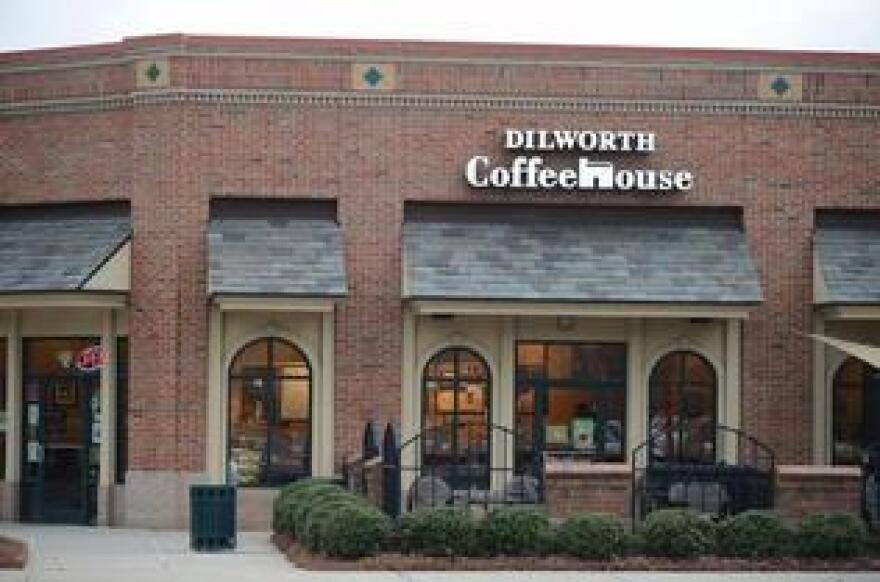A fight is percolating between two Charlotte coffee purveyors over whether their names are so similar that customers will be confused.
The founder of Dilworth Coffee, which celebrates 25 years in Charlotte this week, says the owner of a new coffee shop has taken some of his business by using a nearly identical name and concept, according to a federal lawsuit.
In court documents, Don Keen alleges that Philipp Gerlach, who in July opened Dilworth Espresso in the Kenilworth Commons shopping center on East Boulevard, violated federal trademark laws by mimicking his company’s name while in talks to become a Dilworth Coffee licensee.
Gerlach denies those allegations. He told the Observer he has posted signs explaining that Dilworth Espresso is not licensed with Dilworth Coffee, though the shop does include the Dilworth Coffee brand among its offerings.
Complicating matters: Dilworth Espresso is in the same Kenilworth Commons site that was the original home of Dilworth Coffee. More recently it was the site of Kenilworth East Coffee, a Dilworth Coffee licensee.
Keen is asking that a judge order Gerlach to stop calling his shop Dilworth Espresso. He also seeks payment for an unspecified amount representing the revenue Gerlach’s shop has earned while using that name.
Keen argues that once Dilworth Coffee’s trademark was registered, no other coffee shops with a similar name could operate in the area. Customers, he said, can’t distinguish Dilworth Espresso from Dilworth Coffee. Google one of the names, he said, and you get links to the other.

“The problem is the confusion,” Keen said. “When the public goes into that shop now, they don’t know if they’re drinking Dilworth Coffee or not.”
Gerlach doubts that consumers are confused and calls Keen’s claims on the “Dilworth” name invalid. He said he plans to file a countersuit.
“I don’t believe an individual can own the name of a neighborhood,” he said.
Crucial to Keen’s lawsuit will be whether his lawyers can prove customers are likely to think the coffeehouses are affiliated because the names are similar, said Stephen Ashley, a Charlotte patent attorney who is not connected with the case.
On the other hand, Ashley said, Gerlach can argue that a name such as “Dilworth Coffee,” which combines a neighborhood name with a generic term for the goods sold, should not stop others from adopting a name that combines “Dilworth” with another generic word, such as “Espresso.”
“Those types of marks are given less strength or scope than what we call fanciful marks, like Xerox or Kodak,” he said.
Don and Alyene Keen founded Dilworth Coffeehouse in November 1989, before Starbucks was a household word. Since then, the company changed its name to Dilworth Coffee and now operates four Charlotte-area locations. It also has licensing agreements with other shops in the Carolinas and Georgia.
Licensees can use the Dilworth Coffee name and logos in their advertising and can get pricing discounts when ordering stock from suppliers, Keen said.
Gerlach opened Dilworth Espresso on East Boulevard – Dilworth Coffee’s original location – in July after purchasing the assets of Kenilworth East Coffee.
Keen filed suit in October, claiming the new shop used a name and logos to market a “coffeehouse concept that is markedly similar in appearance to the Dilworth Coffee concept.”
Gerlach maintains that once he purchased the store, Keen did not give him enough time to remove Dilworth Coffee signs that were present under Kenilworth East’s licensing agreement.
The only products in his shop to include the “Dilworth Coffee” logo, Gerlach said, are bags of coffee he bought from Stockton Graham & Co., a Raleigh coffee roaster and wholesale distributor that began roasting for Dilworth Coffee in 2010.
After he opened Dilworth Espresso, Gerlach said he began talks with Keen to become a Dilworth Coffee licensee. Those talks broke down in disputes over suppliers and royalties, both parties said.
“I’m not going to do business with ‘Dilworth Espresso,’ ” Keen said. “It seems to me not very original at this stage 25 years after there’s a Dilworth Coffee.”
Staff researcher Maria David contributed.

